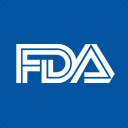There appears to be a full-scale race underway to bring affordable next-gen DNA sequencing into diagnostics and clinical medicine, as demonstrated over the past week or so by Roche’s hostile $5.7 billion-dollar bid for Illumina. Roche’s move should come as no shock. The multi-national healthcare giant has been a leader in diagnostics by virtue of several earlier acquisitions.
There appears to be a full-scale race underway to bring affordable next-gen DNA sequencing into diagnostics and clinical medicine, as demonstrated over the past week or so by Roche’s hostile $5.7 billion-dollar bid for Illumina. Roche’s move should come as no shock. The multi-national healthcare giant has been a leader in diagnostics by virtue of several earlier acquisitions. But this action signifies a formal acknowledgment that next-gen sequencing will be part of the diagnostic and clinical toolbox—perhaps sooner than we thought.
Roche’s aggressive move may be motivated by an optimism that arose from whole genome-sequencing on the individual level. We noted this rising tide of optimism early last year, and many advances have been reported since then. We’re certainly seeing many examples of the application of next-gen sequencing to diagnose disease and to help match the right drugs to the right patients. Examples of companies that are staking claims over the early application of targeted sequencing of specific panels of genes for diagnostics include our client Multiplicom, which develops CE-marked, multiplexed PCR kits to generate templates for next-gen sequencing, and Foundation Medicine, which is using targeted sequencing to help diagnose certain cancers and to guide the treatment of cancer patients.
But when viewing the widespread adoption of DNA sequencing, there’s a vast difference between the targeted sequencing of selected panels of genes, exome sequencing, and whole genome sequencing. As noted in our coverage of the 2011 Molecular Med Tri-Con, the challenge of interpreting the large reams of data gathered from scanning the full genome remains the elephant in the room. We will be attending this year’s Tri-Con later this month and look forward to hearing about progress in this regard.
In addition to the challenge of data analysis, we still face some persistent technical issues. Although the cost of DNA sequencing is declining rapidly, there are significant improvements to the technology that are yet to be realized. Speed, cost, and accuracy will be key drivers of clinical and diagnostic DNA sequencing. Although costs are declining rapidly, most next-gen sequencing platforms are somewhat error prone and they have relatively slow cycle times. The accuracy problem is overcome by re-sequencing samples to a high level of coverage or redundancy to help eliminate stochastic errors. High sequence coverage is also needed to identify cancer causing mutations that are present at low frequency and in samples that often contain a mixture of both healthy and cancerous cells.
In clinical applications where patients’ lives are at stake, an accurate diagnosis is crucial. So improved accuracy will not only generate more reliable data, but will also reduce the computational burden, and lower the overall cost and the time required for analysis. Achieving the 1000x sequencing coverage that is required for cancer-related applications is a weighty burden. Sequencing platforms with higher levels of accuracy, lower cost and higher speed will provide a significant advantage. LaserGen is a forward-thinking company (and Popper and Co client) that has developed advanced sequencing chemistry with greatly improved accuracy, reduced cycle times, and lower cost relative to existing next-gen chemistries. This combination of improved speed, cost, and accuracy could help to drive more widespread adoption of next-gen sequencing for clinical and diagnostic applications.
Also, as noted in a recent Bloomberg News article about young twins whose illness was clearly identified via genome sequencing, many obstacles, including lack of health insurance coverage for sequencing, will likely impede progress. Until payers wrestle with a future that includes a populace that is well-informed about their genetic predispositions, even affordable gene-sequencing may find itself relegated to a pile of non-insurable “preventative” claims. And as mentioned earlier—we still do not fully understand the function of every part of the genome.
Ultimately, I believe Roche’s acquisition of Illumina—if it goes through—will be good for the gene sequencing industry, good for Roche’s competitors and good for healthcare consumers. The buyout of Illumina helps validate the idea that sequencing will become part of the diagnostic and clinical toolbox in the near future. Whether companies realize this and plan accordingly, or whether the wave simply carries everyone along, remains to be seen.
Do you agree that this is a good move for the diagnostics and sequencing industry as a whole? What might it mean for your company or your spot in the life science industry? Please share your thoughts with us here.







